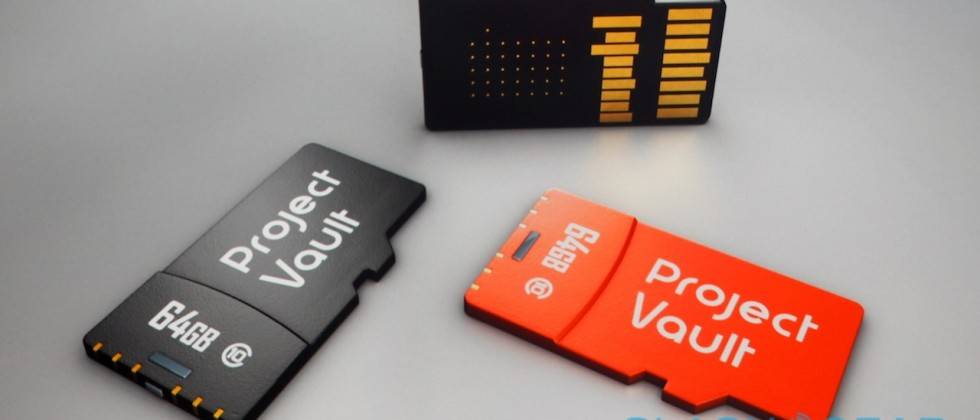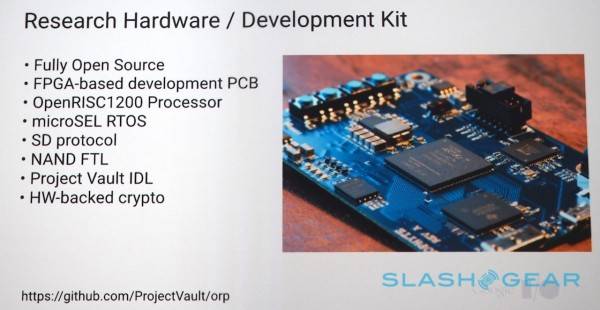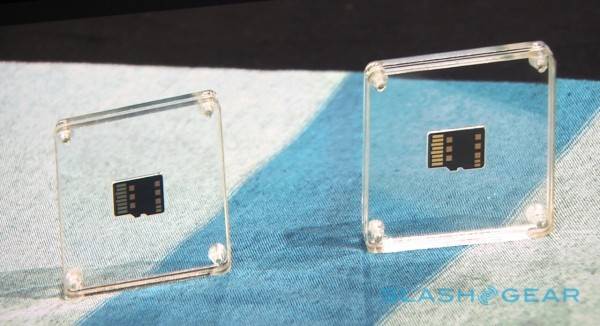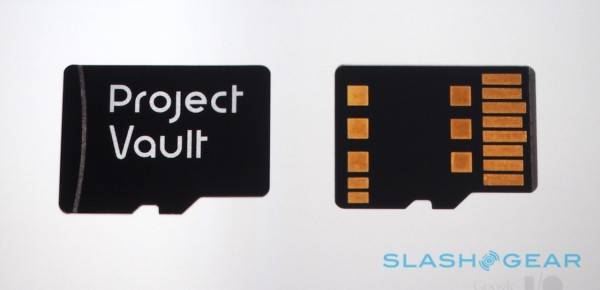
Another cool and interesting revelation out of Google I/O is Project Vault. Nobody gives much attention to microSD technology these days, and if ever it’s only when you announce something with bigger capacity, higher data transfer speeds and all that. But what if you turn your mircroSD into a micro-computer system with data security in mind? This is exactly what Google ATAP is cooking up for us.

Project Vault is basically a full security computer packed into a microSD form-factor. Packed into the small data card is an ARM processor, 4GB of isolated, sealed storage inside, NFC capability and an antenna which the card uses to identify the pertinent and correct user nearby. Plugged into a mobile device, a desktop PC, or even a home-use device which has microSD expandable storage capability, the Project Vault mircoSD allows for entirely encrypted communications from the confirmed user to the microSD without interfering with the operations of the host device.

“There’s an inherent tension between the desire to create capability and the ability to secure the very code that drives those capabilities,” Google ATAP lead Regina Dugan explained. “My home has windows and doors, a porous boundary which is necessary for people and things to come and go. but those windows and doors make it harder for me to protect everything in the house, so I use a vault,” she explained the idea behind Project Vault. “It can’t store all of the content of my house but it can store my most precious possessions.”

Best thing about this new tech? Google ATAP is making it fully open source. Google might be doing this to encourage the people whom they need to ride on what Project Vault can do, but overall, it’s a smart move for the mothership. “We’re doing this to be fully transparent because we want developers to be able to see how it works, understand it, and trust it,” explained Peiter “Mudge” Zatko, formerly of the infamous DARPA and joined Google ATAP in 2013, now heading this ambitious project. We have been told that Google is deploying around 500 prototypes of this tech internally, and there is no information yet on when we can see this out in the market.
VIA: SlashGear









